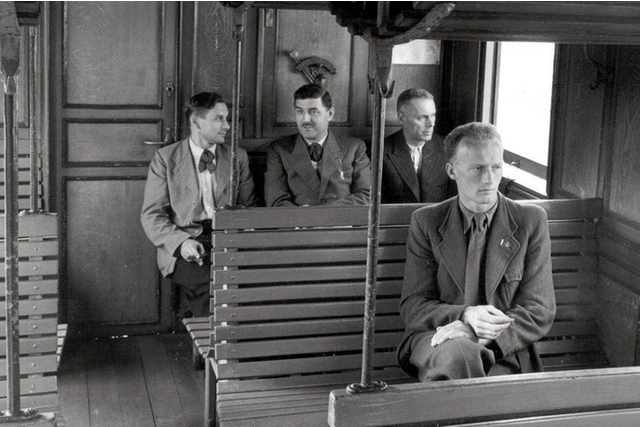Before 1956, Swiss Railways (SBB/CFF) offered third-class rail tickets in so-called ‘wooden class’ Swiss railway companies should introduce a third-class category for passengers on a budget, a report commissioned by the Federal Office of Transport has recommended. The NZZ am Sonntag newspaper said on Sunday that a recent federal government report, commissioned by an external expert group, had recommended introducing “third class aircraft-style seating for maximum capacity at favourable prices”. The proposed seating would be organised in rows of five passengers. The study was commissioned to come up with future solutions for the railways to better compete with budget long-distance coach firms and electric vehicles.
Topics:
Swissinfo considers the following as important: 3) Swiss Markets and News, Business, Featured, newsletter
This could be interesting, too:
RIA Team writes The Importance of Emergency Funds in Retirement Planning
Nachrichten Ticker - www.finanzen.ch writes Gesetzesvorschlag in Arizona: Wird Bitcoin bald zur Staatsreserve?
Nachrichten Ticker - www.finanzen.ch writes So bewegen sich Bitcoin & Co. heute
Nachrichten Ticker - www.finanzen.ch writes Aktueller Marktbericht zu Bitcoin & Co.

Before 1956, Swiss Railways (SBB/CFF) offered third-class rail tickets in so-called ‘wooden class’
Swiss railway companies should introduce a third-class category for passengers on a budget, a report commissioned by the Federal Office of Transport has recommended.
The NZZ am Sonntag newspaper said on Sunday that a recent federal government report, commissioned by an external expert group, had recommended introducing “third class aircraft-style seating for maximum capacity at favourable prices”. The proposed seating would be organised in rows of five passengers.
The study was commissioned to come up with future solutions for the railways to better compete with budget long-distance coach firms and electric vehicles.
The report’s authors argued that customers’ needs were very different and that rail companies should make appropriate offers to as many groups as possible.
However, the proposal got a mixed welcome. The director of the Public Transport Union, Ueli Stückelberger, said third-class travel would offer no additional savings and would complicate the work of public transport companies.
At present they are focusing on offering cheaper tickets outside rush hour periods and have a price cap on tickets until 2020.
+ Swiss take the train more often, and further, than European neighbours
Up until 1956, Swiss Railways (CFF), the biggest rail provider in Switzerland, offered three classes of tickets: so-called ‘wooden class’, mid-class and luxury class, where customers sat on chairs with velvet upholstery and at small tables made of mahogany.
CFF told NZZ am Sonntag in a written reply that third-class travel was “not an issue” right now.
It is unclear exactly what the next steps will be. The transport office said it had taken note of the report’s recommendations, which would be incorporated into projects and strategies “where necessary”.
Switzerland’s system of railways, long-distance buses and local transport is regarded as among the best in the world. The Swiss Federal Railways runs a large network of rail connections and helps coordinate a bus system that reaches into just about every corner of Switzerland. The average Swiss makes 72 train trips a year. In fact the Swiss use rail transport more often than any other nation in the world except the Japanese.
Tags: Business,Featured,newsletter
